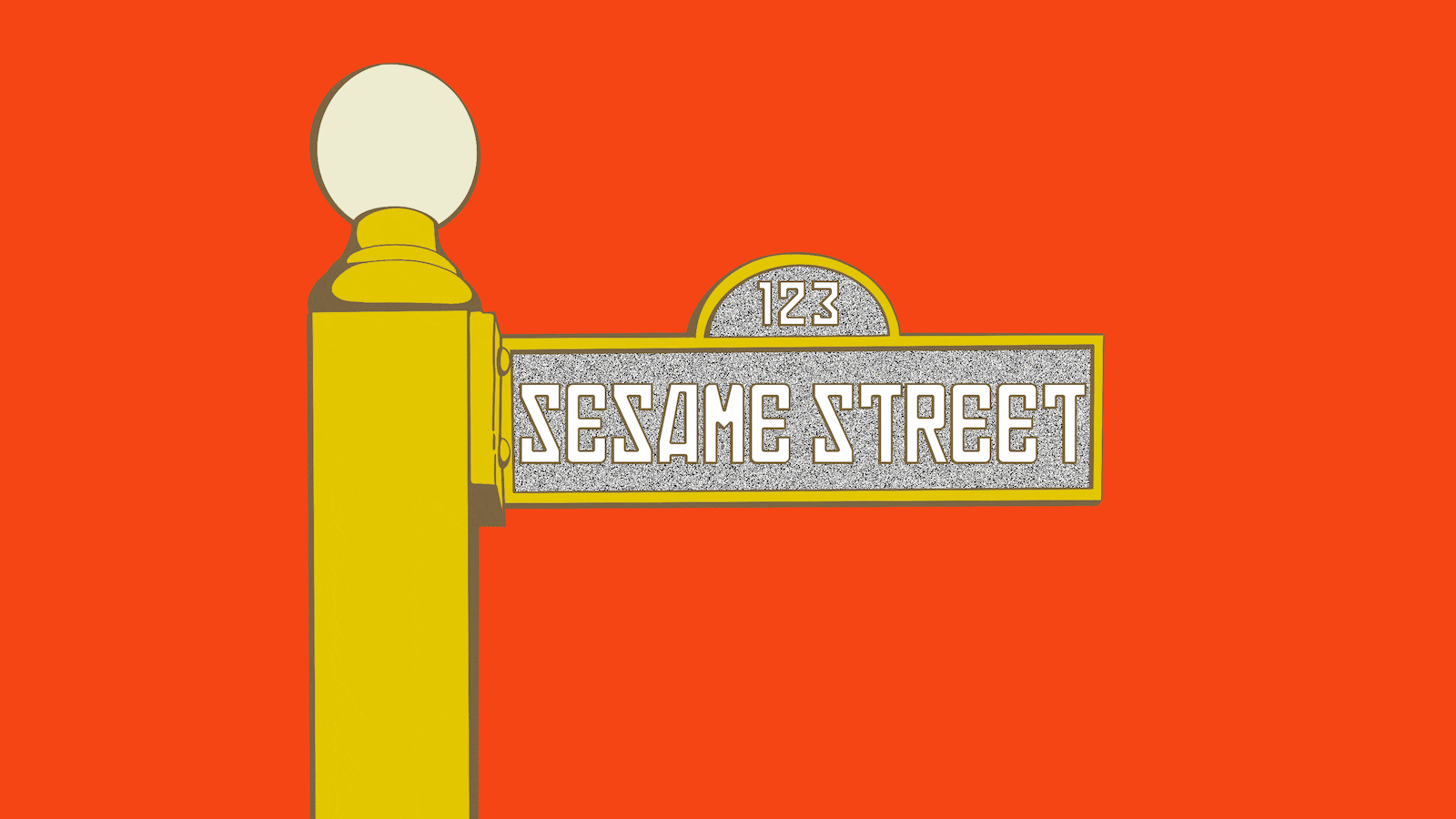It was when the man who had promised to broadcast her show on one of Russia’s top TV networks was murdered that Natasha Lance Rogoff realized she wasn’t in Kansas anymore.
Sure, this wasn’t the first example of the chaos and corruption endemic in post-Soviet Russia in the 1990s—previously, an oligarch who had committed to financing the show survived having his car blown up and fled the country. Later on, Lance Rogoff’s production studios would be taken over by the military, everyone forced to evacuate, and given no access to equipment and
scripts. Yet another TV executive who had agreed to broadcast her show was also assassinated.
All this because Lance Rogoff wanted to bring Sesame Street to Russian TV.
But it was Vlad Listyev’s murder, says Lance Rogoff, that “made me have serious doubts if Russia was ready for Sesame Street." Listyev, a journalist and head of the ORT TV channel, one of only two broadcasting throughout the country, was, says Lance Rogoff, “our confidante, he wanted to air the show, and when he got murdered in cold blood, it was so brutal. He was the kind of man who was going to lead Russia to a better future; he was fighting corruption in the TV industry.”
All this and more is covered in Muppets in Moscow, Lance Rogoff’s fascinating, and sometimes horrifying, look into the clash of cultures and political instability she had to deal with as executive producer of Ulitsa Sezam, the Russian version of the beloved American show.

A filmmaker and journalist fluent in Russian, Lance Rogoff had no experience working in children’s TV when she was approached by Sesame Street executives after a screening of a documentary she had made about the country. She was eventually tasked with finding a local co-production and broadcast partner, as well as supervising the hiring of actors, writers, directors, puppeteers, and other personnel.
“The cultural differences and level of technical expertise were profound,” says Lance Rogoff of the experience. For example, even though Russian film directors like Sergei Eisenstein and Andrei Tarkovsky were world renowned, “Russian producers and directors had very limited experience producing multi-episodic dramatic television with sync sound. Through all the discussions of the creations of the [Russian] Muppets, where the Russians wanted them to reflect their old puppet tradition (Russian puppets were made of wood, not the foam of the Muppets) and other issues where they were playing to their strengths, this was a human response to a society that for many years had lived in constant turmoil. Their insecurity comes from being behind the West, but being unaware where their country was going in the future.”
Some of the cultural differences were so glaring, they seem positively humorous in retrospect. A colleague told Lance Rogoff that “happy is not a Russian concept,” and she discovered this was true on a number of levels. When, for example, auditions were held for the role of the show’s main child actor, the songs the kids performed were almost invariably sad melodies with tragic lyrics. One Russian collaborator demanded that the show include Baba Yaga, a witch who eats children. The music director disapproved of all music but classical and thought rock music was “polluting.” There was great resistance to incorporating ethnic minorities like Chechens and Kazakhs into the shows. And one of the writers thought it was a great idea to teach the letter D as in “D is for Depression” (Lance Rogoff said she wouldn’t have been surprised if a script had been submitted where a Muppet throws herself under a train a la Anna Karenina, to illustrate “J is for Jump”). None of this was exactly upbeat Sesame Street material.
“The theme of sadness is deeply rooted in Russian culture, music, and literature,” says Lance Rogoff. “Sadness is an intrinsic part of Russia, it’s a society of contradictions. They’re passionate, artistic people, and perhaps their genius stems from their sadness. For hundreds of years, this land has lived with turmoil and bloodshed. They have a tragic history.”
And there was always a problem with planning. Anything could happen in those days. Dated equipment could break down, actors could arrive drunk, people could go weeks and months without being paid, there could even be a coup. “Each conversation I have with my Russian colleagues feels tinged with wounded pride,” says Lance Rogoff in the book. “A desperation to preserve the country’s history and identity makes it difficult for them to embrace the creation of something new.”
But embrace it they finally did. Baba Yaga never made it into the final mix, but Businka, Zeliboba, and Kubik, adorable new Muppets created especially for Ulitsa Sezam, did. Ethnic minorities made an appearance. The music director came around after meeting with a very erudite Russian rocker, who convinced her that pop music wasn’t all bad. And even though the first scripts were downbeat and depressing, they eventually incorporated humor and an original style of writing with stories that were sweeter than those in the U.S., but not falsely sentimental.
Through all this, Lance Rogoff spent a great deal of time and energy trying to find a Russian investor and broadcast partner. Plus, the political chaos in the country had Sesame Street executives in America wondering whether they should just dump the show. Lance Rogoff also had to deal not only with Russians who were not used to a female boss in a patriarchal society, but increasing criticism from the Russian media, which objected to the Americanization of society, as seen in the proliferation of U.S. businesses like Pizza Hut and McDonald’s.
There was also the fact that, as one colleague told her, “All Russian business is Mafia business. There is no other kind.”
“Why teach values like justice, ethics, and the rule of law if the first thing we do is partner with Russians who violate those same principles?” says Lance Rogoff in the book.
But everything finally worked out. Ulitza Sesam debuted on Russian TV in October 1996, was an instant hit, and ran until 2010, when it was no longer supported by Putin’s people at the networks. Nearly thirty years later, Lance Rogoff decided to write about her experience because “I thought if I write this story, people would gain insight into Russian culture which impacts our relations today. And I had worked with courageous people who made sacrifices to make this show and were committed to building an open society as much as we were.”
Obviously, that open society hasn’t happened. Lance Rogoff still isn’t sure why all the violence around her show occurred—she thinks she got caught in the middle of a power struggle to control Russia’s two main TV channels—but the experience helped her to understand “that there are people in Russia committed to change, and many of these people have had to flee Russia because they were vocal against the [Ukraine] war on social media.”
The bottom line is that Lance Rogoff wants readers of Muppets in Moscow to “think about this incredible story about people who shared their values and tried to create a different Russia, and the ways in which our societies differ, the ways the stories in the book foreshadow differences that continue to today.”






